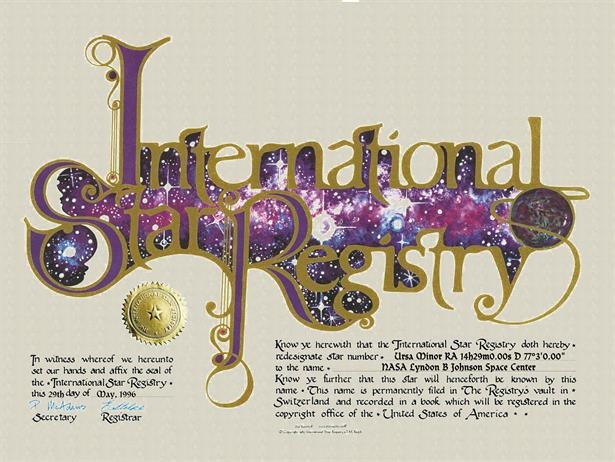The Star Named for Lyndon B Johnson
Modified: July 1, 2023 Author: International Star Registry

Lyndon Baines Johnson, or LBJ as he was often known, was a prominent American politician who served as the 36th President of the United States from 1963 to 1969. Before assuming the presidency, he had an illustrious career in various elected offices at the federal level, including serving as the 37th Vice President under President John F. Kennedy. Born on August 27, 1908, in Stonewall, Texas, Johnson’s early life was marked by his humble beginnings on a farmhouse in a politically active family.
LBJ’s political journey began when he won a seat in the U.S. House of Representatives in 1937 after working as a high school teacher and a congressional aide. One of the defining moments of his career was winning the 1948 Senate election in Texas, which was fraught with controversy but ultimately led to his victory in the general election. He rose through the ranks within the Senate and became the Senate Majority Whip in 1951, followed by the Senate Democratic leader in 1953 and the majority leader in 1954.
In 1960, Johnson sought the Democratic nomination for the presidency, but he lost to Senator Kennedy, who later surprised many by choosing Johnson as his running mate. Tragically, President Kennedy was assassinated on November 22, 1963, and Vice President Johnson was sworn in as the President. In the following year, he won the presidential election in a landslide against Senator Barry Goldwater, with an impressive 61.1% of the popular vote.
Lyndon B. Johnson’s presidency was marked by significant domestic policy initiatives. He launched the “Great Society” program, aiming to expand civil rights, public broadcasting, healthcare access, education and the arts, urban and rural development, and public services. Additionally, he spearheaded the “War on Poverty” campaign, focusing on improving living conditions for low-income Americans. Some of his notable achievements during his term include signing the Social Security Amendments of 1965, which established Medicare and Medicaid, and the Higher Education Act of 1965, which provided federally insured student loans.
On the astronomy and astrology front, Johnson made space exploration a national priority. He bolstered NASA and played a crucial role in the Apollo Program. In recognition of his contribution to space exploration, a star was named after him through International Star Registry on May 29, 1996. The star is located in the Ursa Minor constellation, a well-known constellation in the northern celestial hemisphere. Ursa Minor is famous for containing the North Star, Polaris, which has been historically significant for navigators and travelers. Astronomy enthusiasts and astrologers alike find fascination in Ursa Minor’s starry landscape and its navigational importance.
International Star Registry, a renowned organization that allows individuals to “name a star,” offers a unique way to honor special individuals like President Johnson. The star named after Lyndon B. Johnson can be found at the following coordinates: Ursa Minor RA 14h 14m 0.00s D 77° 12′ 0.00″.
Returning to Johnson’s accomplishments, his presidency was a time of profound transformation in American politics and society. His commitment to civil rights was evident in the signing of landmark legislation, including the Civil Rights Act of 1964, the Voting Rights Act of 1965, and the Civil Rights Act of 1968. These historic acts paved the way for significant progress in the fight for equality and civil rights.
Johnson’s foreign policy focused on containing communism during the height of the Cold War. He faced challenges in the Vietnam War and made the controversial decision to escalate American involvement. The war, however, met strong opposition from the public and led to increased protests and social unrest in the United States. Despite the mixed reception of his legacy, Lyndon B. Johnson left an indelible mark on American history. His presidency witnessed groundbreaking advancements in domestic policy, and his leadership played a pivotal role in shaping the modern liberal movement in the 20th century.
In conclusion, International Star Registry’s gesture of naming a star after Lyndon B. Johnson at NASA’s Lyndon B. Johnson Space Center serves as a unique and meaningful tribute to his legacy. The act of “naming a star” offers a perfect gift for various occasions, such as christenings, weddings, and birthdays. By dedicating a star in someone’s name, individuals can symbolically honor their achievements and create lasting memories.
Whether commemorating historical figures, celebrating loved ones, or marking special moments, International Star Registry’s “buy a star package” allows people to give a truly extraordinary and personalized gift. Honoring President Lyndon B. Johnson in the cosmos underscores the impact of his contributions to American society and space exploration.
References:
- Biography of Lyndon B. Johnson – https://en.wikipedia.org/wiki/Lyndon_B._Johnson
- Ursa Minor Constellation – https://en.wikipedia.org/wiki/Ursa_Minor
- International Star Registry – https://www.starregistry.com
FAQ
Q. What Constellation will I look for the find the star for Lyndon B Johnson?
A. This star is in the constellation Ursa Minor, which is viewable year-round. Ursa Minor is also known as the “Little Dipper”
Q. How can I look up a star named for him?
A. This star is printed on page 360 the book Your Place in the Cosmos, Volume 4. This permanent catalog of named stars was published and copyrighted in 1996.
Q. Will I receive the same star certificate you issued to the Presidents?
A. yes, when you buy a star package to name a star, you will receive the same International Star Registry Certificate we have issued since 1979.
